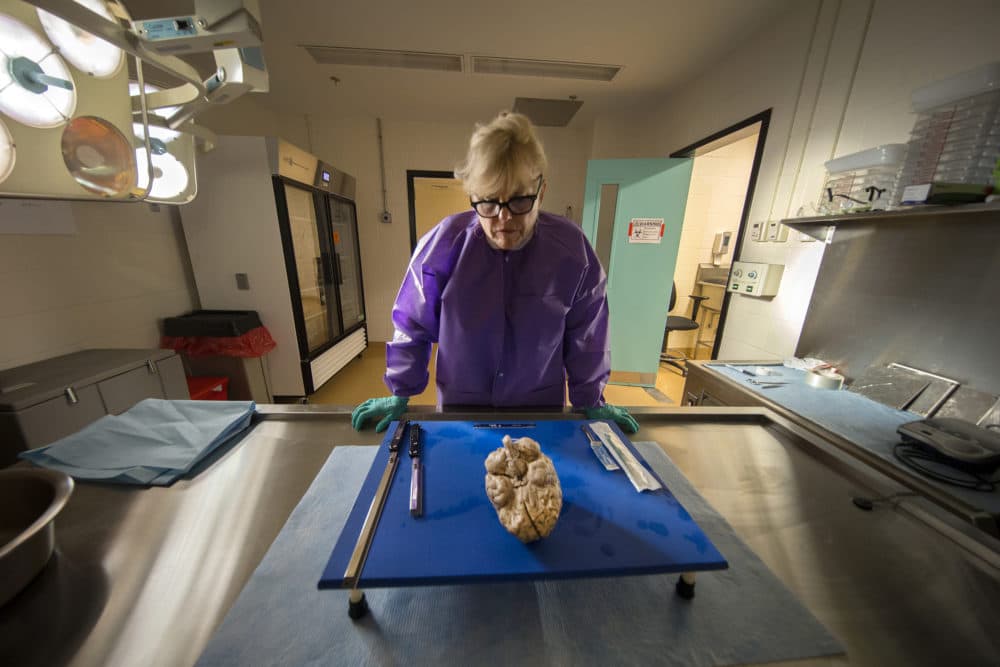Advertisement
BU Researchers: CTE Study Offers Potential Path For Diagnosing The Brain Disease Before Death

Researchers at Boston University School of Medicine say they are one step closer to being able to tell if a living person has chronic traumatic encephalopathy (CTE).
The brain disease known to develop in some people who experience repetitive head trauma — such a football players or military veterans — so far has only been identified in people after their deaths.
The BU study looked at both cognitive and behavioral symptoms to determine potential markers for the disease. It found symptoms of cognitive decline were more useful than mood or behavioral changes for predicting CTE.
Among those symptoms were progressive memory loss, the inability to solve problems or follow directions and difficulties with focus.
Study author Jesse Mez said understanding how CTE presents — and how it doesn't — is essential.
"The only way to treat this disease and to test treatments is to be able to diagnose it in life, and the only way to be able to figure out how common this disease is is to be able to diagnose it in life," he said.
Mez added that the researchers interviewed the families and contacts of deceased people who had played contact sports, were in the military or experienced physical violence, to see if they had exhibited certain symptoms before they died. The study then looked at the brains of those individuals to see if any had developed CTE.
